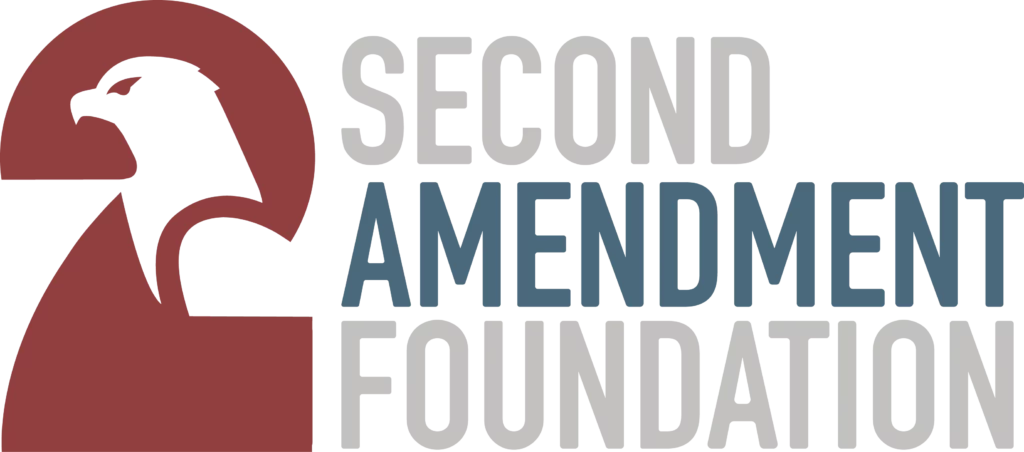by Lee Williams
In what may be a sign of growing desperation, a new anti-gun nonprofit has funded and filed two lawsuits against American firearm manufacturers in Mexican courts, a lawsuit against Smith & Wesson in a Canadian court, and a civil rights complaint with the Inter-American Commission on Human Rights – a foreign group with no legal authority in the United States.
Global Action on Gun Violence hopes “international pressure” from their foreign lawsuits will somehow give rise to increased gun control in the United States, according to a recent story in the Trace, which is the propaganda arm of former New York City mayor Michael Bloomberg’s anti-gun empire. Global Action on Gun Violence, or GAGV, has not filed its financial information or been rated by the country’s largest nonprofit watchdogs.
While the GAGV has only been around for a few years, its president and founder, Jonathan Lowy, spent decades in the gun-control industry. Lowy worked 25 years as chief counsel and vice-president for legal affairs at the Brady gun control group. In addition to Lowy, GAGV’s chief development officer, chief financial officer and communications manager worked for Brady too. Lowy is a member of the American Bar Association’s gun violence committee and has written several gun-control stories for major newspapers, including an opinion column for The Washington Post, which was titled “The Mexican cartels can be stopped if we stop supplying them with arms.”
Lowy’s column does not hold the ATF accountable for “Operation Fast and Furious,” which put hundreds of American firearms into the hands of the Mexican drug cartels, who used them to murder Border Patrol Agent Brian Terry in 2010, as well as hundreds of Mexican nationals.
In his interview with the Trace, Lowy acknowledged he created the GAGV out of frustration.
“Ultimately, I was frustrated by the lack of progress and the limits of boldness and imagination in U.S. gun violence prevention efforts. The violence in the U.S. was getting worse. The Protection of Lawful Commerce and Arms Act was enacted, which made it much more difficult to sue the gun industry, which was one way that we made progress when Congress wasn’t taking action. And the Supreme Court was making Second Amendment law much more restrictive,” he told the Trace. “And then I began working with the government of Mexico, which decided to bring a lawsuit against major gun manufacturers. It’s the first country in the world to bring a lawsuit against the gun industry. It was an example of the sort of bold action that you can get working outside of the U.S.”
Lowy also admitted he complied with the Foreign Agents Registration Act – federal law that requires agents of a “foreign principal” to publicly disclose their obligations to the foreign government.
“We’ve registered as a foreign agent for Mexico to enable us to more broadly represent them. That’s not been done by any other group,” Lowy told the Trace.
The GAGV’s legal argument, in both the Mexican and Canadian cases, is that the Protection of Lawful Commerce and Arms Act does not apply “to cases such as this, where the harm was caused abroad.” The PLCAA, which became federal law in 2005, protects American firearms manufacturers from liability when their products are used during the commission of a crime. It does not shield gunmakers from lawsuits arising from defective products.
Lowy did not explain how a Mexican or Canadian court would enforce an order or judgement in the United States, nor did he say how the foreign lawsuits would lead to increased gun-control legislation, other than by applying “international pressure.”
‘Frivolous lawsuit’
Pennsylvania attorney Joshua Prince is one of the country’s preeminent Second Amendment specialists. He has represented thousands of individuals, hundreds of gun dealers and dozens of gun clubs and shooting ranges in state and federal cases. He is chief counsel for the Firearms Industry Consulting Group, and frequently posts advice for gun owners, gun dealers and gun clubs and ranges on FICG’s YouTube channels: FICG Federal and FICG Pennsylvania.
Prince predicts the GAGV’s lawsuits will fail because “there is no jurisdiction for the court in relation to American corporations, assuming they have not registered in the foreign jurisdiction.”
“It sounds to me like all they’re trying to do is stir the pot and try to get some attention for the frivolous lawsuits that they’re filing,” Prince said. “This is similar to what we’re seeing here. It’s not much different than Brady suing for atrocities that are not traceable back to the manufacturer. Not one of these entities would go after car manufacturers for deaths associated with DUIs.”
‘Open your imagination’
Most will scoff or even laugh at GAGV’s foreign lawsuits and the infinitesimally small chance they’ll ever result in increased gun control as the plaintiffs’ hope. Even Lowy acknowledges this, but quicky serves up another benefit – perhaps the only benefit – of his group’s litigation: The suits could raise morale among the tired, demoralized gun-banners.
“One of the greatest, perhaps the most dangerous, foes that we face in the gun violence prevention movement is hopelessness. If you open your imagination to look at what the rest of the world does, you realize it’s not hopeless at all,” Lowy told the Trace.
Given the increasing number of unconstitutional post-Bruen “tantrum laws” that are introduced in blue states only to be overturned by the courts, and the consistent wins against ATF’s unconstitutional rules and regulations the courts are handing down, it’s not difficult to understand why the gun-ban industry is feeling a sense of hopelessness.


